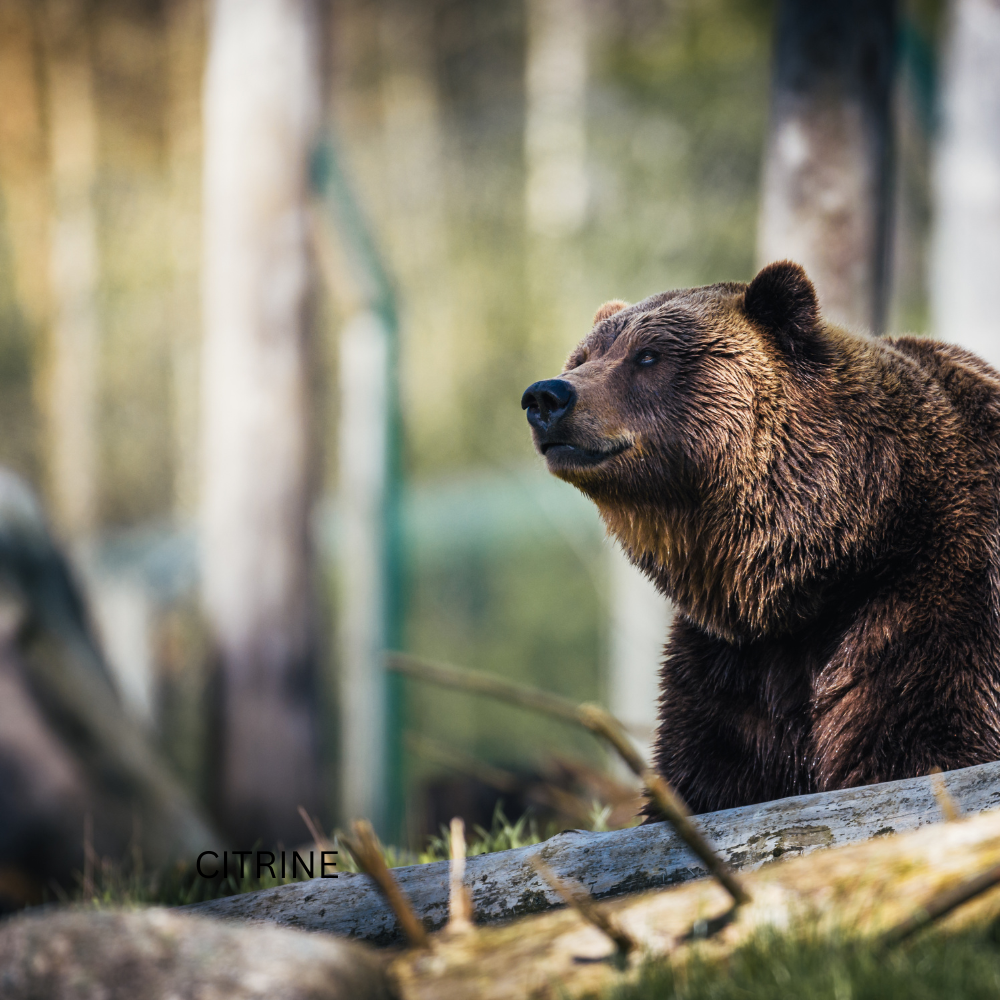What are spiritual animals?
In many cultures around the world, the concept of spiritual animals has remained prominent throughout history. These spiritual beings are believed to possess unique qualities and characteristics that humans can learn from and draw strength from. Often associated with certain traits or symbols, spiritual animals serve as powerful guides and protectors on one’s spiritual journey. While the specific animals considered to be spiritual may vary across different cultures, the underlying belief in their existence and significance remains constant.
Native Americans believe that animals possess spirits and are essential in maintaining balance and harmony in the natural world.
One of the most well-known examples of spiritual animals can be found in Native American cultures. Each animal has its unique attributes, and those who connect with a particular spiritual animal embark on a journey to discover and embrace these qualities within themselves.
An Eagle is a symbol of strength, courage, and freedom.
The eagle, a magnificent and noble creature, holds a significant place in numerous spiritual traditions throughout the world. Revered for its strength, keen eyesight, and soaring flight, the eagle embodies traits that resonate deeply within the human spirit. As a spiritual animal, it symbolizes divine connection, transcendence, and enlightenment.
In Native American cultures, the eagle is believed to be a messenger between humans and the divine. It is seen as a guide, leading one on a spiritual journey towards higher consciousness. The eagle’s ability to fly high above the earth grants it a unique perspective, allowing it to see the bigger picture. Thus, it encourages individuals to rise above the mundane and gain a broader vision of life.
Also, the eagle symbolizes freedom and independence. Its soaring flight inspires us to break free from the limitations that hold us back, becoming liberated from the burdens of the physical world. By shedding these constraints, we can achieve spiritual growth and discover our true potential.
The eagle’s sharp vision resonates metaphorically, representing clarity of thought and insight. Just as the eagle can spot its prey from great distances, it urges us to develop a clear perspective and see through illusions. This clarity enables us to navigate through life’s challenges with wisdom and discernment.
Above all, the eagle stands as a symbol of spiritual awakening. Its formidable presence serves as a reminder of our divine connection and encourages us to reach higher realms of spirituality. As we contemplate the eagle’s grace and majesty, we are reminded of the immense power of the human spirit and our ability to transcend the ordinary.
An owl is associated with intuition, knowledge and spiritual insight.
The owl, a majestic creature of the night, has long been regarded as a spiritual animal in various cultures and belief systems across the globe. Its unique characteristics and behaviors have inspired people to assign it significant meanings and symbolism throughout history.
In Native American traditions, the owl is often associated with wisdom, intuition, and clairvoyance. Its ability to see in the darkness and navigate through the night sky has prompted many to view it as a symbol of uncovering hidden truths. The owl’s haunting hoots, regarded as otherworldly, have led some to believe that it possesses a connection to the spirit realm.
Similarly, in ancient Greek mythology, the owl was associated with Athena, the goddess of wisdom. The bird’s watchful and all-seeing eyes became a representation of intelligence and foresight. The presence of an owl was believed to signal the presence of Athena’s guidance and protection.
In many spiritual practices, the owl is seen as a messenger between the earthly realm and the divine. Its ability to fly silently and swiftly allows it to travel between realms undetected, delivering messages from higher powers to those in need. This connection to the spiritual realm has solidified the owl’s reputation as a highly regarded spiritual animal.
A bear is a symbol of introspection and wisdom.
The bear, a creature of great strength and wisdom, holds a significant role in many spiritual traditions across the globe. Regarded as a spiritual animal, the bear symbolizes a powerful connection between humans and the natural world, offering profound lessons about life, resilience, and introspection.
In Native American cultures, the bear holds a sacred place, representing courage and protection. It is often associated with healers and spiritual guides, as its ability to hibernate and emerge from the darkness of winter symbolizes rebirth and transformation. The bear teaches us the importance of taking time for introspection and self-reflection, reminding us to retreat into solitude to find answers within ourselves.
In various Asian cultures, the bear is seen as a symbol of bravery and strength. In Chinese mythology, the “Five Great Bears” are revered as celestial guardians of the universe, ensuring harmony and balance. Additionally, in Japan, the bear is regarded as a sacred creature and is associated with endurance and maternal love.
The bear’s spiritual significance is not limited to indigenous cultures. In European folklore, bears are often depicted as shape-shifting beings with the ability to communicate with both humans and gods. The bear’s wisdom is recognized in stories and legends that highlight their intuitive nature and deep connection to the spiritual realms.
Fox as a symbol of adaptability, divine wisdom and spiritual guidance.
The fox has long held an esteemed place in various spiritual practices and folklore across cultures. Serving as a powerful symbol, the fox embodies a wide range of virtues, making it a unique and revered spiritual animal.
In many indigenous belief systems, the fox is associated with cunning intelligence and adaptability. Its ability to navigate through various terrains, including urban landscapes and dense forests, highlights its agility and resourcefulness. This resilience is often seen as a lesson in adaptability for humans, encouraging us to embrace change and find creative solutions to life’s challenges.
The fox’s elusiveness grants it a mystical aura in many spiritual traditions. This characteristic has led to the perception of the fox as a harbinger of transformation and magic. In Japanese folklore, the kitsune, a mythical fox, possesses shapeshifting abilities and is revered as a deity. This association connects the fox with the spiritual realms, emphasizing its role as a symbol of divine wisdom and spiritual guidance.
This beautiful animal is viewed as an emissary between the physical and spiritual realms, bridging the gap between the known and the unknown. Its keen senses and acute awareness are believed to enable it to discern hidden truths and navigate the spiritual realm effortlessly. The fox’s capacity to see beyond the surface is regarded as a metaphor for spiritual awakening, encouraging seekers to delve deeper into their own consciousness.
A cow is a symbol of generosity, patience, and motherly love.
Beyond Native American traditions, various other cultures have also assigned spiritual significance to certain animals. In Hinduism, the cow is deemed sacred and revered as a spiritual symbol. Hindus believe that the cow embodies qualities such as generosity, patience, and motherly love, reflecting the virtues that humans should strive to possess. It is not uncommon to see cows freely roaming the streets in India, as they are seen as being part of the divine essence.
In Chinese culture each year is associated with a different animal, and individuals born in that year are believed to possess the animal’s characteristics.
In Chinese culture, the spiritual animal zodiac is a significant part of astrology and personality analysis. Each year is associated with a different animal, and individuals born in that year are believed to possess the animal’s characteristics. The Rat, for example, embodies resourcefulness and intelligence, while the Tiger signifies bravery and resilience. By understanding one’s spiritual animal in the Chinese zodiac, people gain insight into their natural strengths and areas for growth, enabling them to live in harmony with their true nature.
Chinese Year Animals, also known as Chinese Zodiac animals, are an integral part of Chinese culture and tradition. The Chinese Zodiac is based on a twelve-year cycle, with each year being associated with a specific animal. These animals are believed to symbolize particular traits and characteristics that may influence one’s personality, destiny, and compatibility with others.
The twelve Chinese Zodiac animals are: Rat, Ox, Tiger, Rabbit, Dragon, Snake, Horse, Sheep, Monkey, Rooster, Dog, and Pig. Each animal is assigned to a specific year based on the lunar calendar, and it is believed that people born in that year will inherit the qualities associated with that animal.
For instance, those born in the Year of the Rat are seen as resourceful, intelligent, and adaptable. The Ox represents reliability, diligence, and determination, while the Tiger signifies courage, confidence, and competitiveness. The Rabbit is associated with kindness, sensitivity, and diplomacy, whereas the Dragon represents power, energy, and self-assurance. The Snake symbolizes wisdom, grace, and intuition, while the Horse embodies strength, independence, and a free spirit. The Sheep signifies gentleness, compassion, and artistic talent, while the Monkey relates to intelligence, curiosity, and versatility. The Rooster is seen as punctual, organized, and courageous, while the Dog represents loyalty, honesty, and a strong sense of justice. Lastly, the Pig embodies generosity, kindness, and a love for enjoyment.
In this modern age, where the pace of life can be overwhelming and the connection with nature often seems distant, embracing the idea of spiritual animals can provide a sense of grounding and connection.
While these examples highlight how spiritual animals are connected to various cultures, it is essential to recognize that the concept extends beyond religion and tradition. Many individuals today embrace the idea of spiritual animals as guides and sources of inspiration, even if they do not adhere to a specific cultural belief system.
Some people find a deep connection with certain spiritual animals based on personal experiences or a sense of resonance with their characteristics. Whether it is the loyalty and companionship of a dog or the grace and adaptability of a dolphin, individuals often seek solace and guidance from these spiritual beings.
Overall, spiritual animals are powerful symbols and guides across cultures. Whether deeply rooted in ancient traditions or embraced on an individual level, the belief in the spiritual significance of animals continues to shape and enrich the human experience. By recognizing and embracing the qualities represented by these creatures, individuals can find strength, inspiration, and a deeper connection to the natural world.







